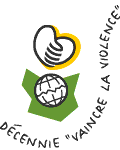Marcelo Schneider's blog from the US Living Letters visit

The Living Letters blogs are written to share about visits to specific countries or regions around the world, organized by the World Council of Churches (WCC) Decade to Overcome Violence initiative along with assistance from local coordinators, churches and other organizations. The Living Letters blogs are personal narratives from members of the "Living Letters" team and do not necessarily represent the opinion or policies of the World Council of Churches.
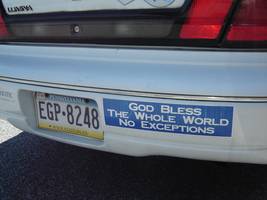
Almost two months have passed since the end of our Living Letters visits to the US. We all wrote our reflections, we shared our photos and tried to continue our mutual commitment regarding peace agendas in the midst of our churches back home.
People wrote and said different things about our visits. Some comments were too hard, others too kind. Some think each one of us should deal with the issues on our own backyard before coming to the US and listen about violence, peace and people who cope daily with these issues. Others sent us messages of gratitude, expressing the importance of our visits, which helped nurturing a common feeling of being together in the global Christian family.
I'm sure that next Christmas each one of us, when thinking about the year 2007, will remember what we saw during those days in the US and will feel encouraged to join the prayer for just peace we shared with our brothers and sisters in the US.
Happy Thanksgiving to the ones who welcomed us in the US, to the hosting families, to the ecumenical leaders, the church representatives, to the staff of the WCC offices, to the whole world, with no exceptions.
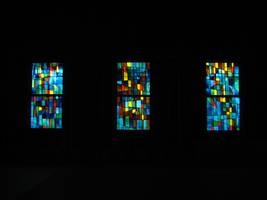
I\'m at La Guardia airport now, waiting for my flight to Washington and then back to Brazil. The other members of the Living Letters went home yesterday. Our group split in New Orleans, when Lina went for a TV interview and the rest of us went to the airport to fly back to NYC.
It is going to take a long time for us to process all that we\'ve seen and experienced. But we will try. Ths blog will not end here, technically. I have the intention to add more thoughts along this next two weeks.
For the moment, I still keep thinking on all we\'ve done in so little time. We travelled in a rented van to so many places and little by little the van was getting smaller. \"Our van\" did not have enough space to carry all the people who are with us by the end of this trip: the ten girls and the violence perpetrator from Nickel Mines PA, the man that was murdered in the night we spent in Philadelphia, the \"Jena 6\" (google this expression to know more), the victims of the man-made errors in New Orleans, and so on.
We don't need a larger van though, we need bigger arms to express our solidarity and to make people feel that they are not alone and that there is a World Council of Churches that care for them and will stand for them in national and international fora. And we need people that not only receive living letters but also read them. Such as we\'ve received their message and will honour them.
-- TO BE CONTINUED --
The picture is from the windows of Beecher Memorial Church, in New Orleans.
Funny how you deplore violence yet seem to support the so-called \"Jena 6\", six youths who beat an unarmed kid. Why the double-standard?
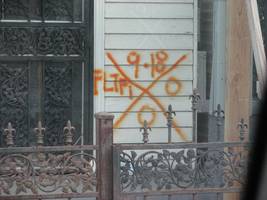
The visit we made to several areas of New Orleans has caused impact in each one of us. It is hard to see the concrete devastation caused by Katrina, even if this happened more than two years ago. Many wounds are still visible in New Orleans. But there is also hope and strength, such as the ones that move Brenda, one of the few members of Beecher Memorial Church, from the United Church of Christ, who are living in their own homes.
Rev. Dr Bernice Powell-Jackson, the North American President of the World Council of Churches, is the pastor of Beecher Memorial. She took us all by the hand and shared the pain of the members of her congregation and the suffering of the people in New Orleans. It was through the eyes and witness of one of the most proeminent leaders of the WCC that we knew New Orleans and its call for help.
\"Most of the rebuilding work around here is being done by chuches or for Habitat for Humanity\", said Bernice, when we were visiting the Lower 9th Ward, the closest neighbourhood to the Mississipi river.
Looking at the new levees that are supposed to hold possible future floods from the Mississipi was also intriguing. If these are the new ones, how high were the previous ones, that had a direct influence in this man-made tragedy?
You can learn more about this area watching this video:
www.youtube.com/watch
It was clear that the suffering from this people and their ability to cope has shown us that the churches have a decisive role to play in New Orleans. Many of them are already doing on a local level. Many are also the messages and material support being sent from several parts of the country, but we still wonder how much can be learnt from these people\'s cope and attachement to their roots.
Sacrifice, reconciliation and communion are some of the theological keys that have appeared in our informal coversations during and after the visit.
Later on, we all went to the Snug Harbor, a famous jazz club in the French Quarter, and were blessed through the hands of an incredible line-up of jazz players from New Orleans, including Ellis and Jason Marsalis. It was a healing moment to all of us. And we sure had glimpse of what this city has to offer to the world in terms of culture. Sorrow is still there. So is beauty.
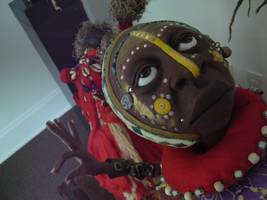
The reflections that are posted here were all formulated before we had the tour around New Orleans and have seen closely the consequences of Katrina. For me it is quite clear that we will need to have two different approaches to our visit to New Orleans. Here\'s the first part:
"New Orleans is today the ground zero for every racial, economic and social problem in this country". This framework to understand what we were about to see in Louisiana was given by the North American president of the World Council of Churches, Rev. Bernice Powell-Jackson, who was expecting us at the airport.
Nearly two years after been devastated by Katrina, New Orleans is today one of the most violent cities in the USA.
At Dillard University we had the oportunity to meet local religious leaders for a panel discussion entitled "rebuilding our community by overcoming violence", when Rev. William Macintosh, president of the Interfaith Communications International, shared his anguish and encouragement regarding issues of violence saying that he expects us "to share the suffering of this city and help this people to overcome a violence that seems to destroy all that has always meant to be the best qualities of our region". The questions that framed our dialogue in this meeting were:
- How is violence impacting the re-building of New Orleans?
- What are some of the things that churches are/can do?
- What can we learn from our brothers and sisters in Pakistan, Lebanon, South Africa and Brazil?
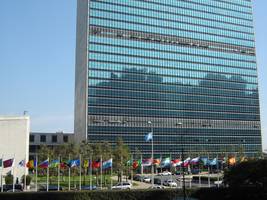
Seeing the actor Michael Douglas at the conference room #4 of the UN headquarters in NYC was something that we did not expect. Most of us were used to see this gentleman in different action movies associated with violence. And there he was, in front of all these children who came to the UN to attend the ceremonies of the International Day of Peace, side by side with the Secretary General of the UN, Mr. Ban Ki-Moon, giving a strong testimony about his concerns about international agreements regarding nuclear weapons.
This was one of the impacting moments of our September 21, the day we have spent next to the WCC liason office at the UN, located at the Church Cente for the UN. We had the chance to quickly meet the delegation of the Evangelische Kirche in Deutschland (EKD) and representatives of the Church World Service, who were also at the common breakfeast sponsored by the WCC's liason office at the UN. We were warmly hosted by Chris Fergunson and his staff. Being able to networking with the WCC offices here in NYC is extremely important. Especially in times in which the Council is focusing more in networking efforts, it good that we do our best to increase and nurture our internal WCC relationships.
The Prayer service at the interreligious chapel of the Church Center was also very moving, specially when all were invited to bring a rock to the altar, expressing the mark of our hearts and the conviction to peace building personally, communally, nationally and internationally.
Semptember 21 is also the International Day of Prayer for Peace, a joint initiative of the UN and the WCC. We receive many messages from people who are praying for us during this trip and we hope that these prayers can be multiplied around the world and focus on the theme of peace. "We need to pledge allegiance to the flag of peace", stated Lina during the panel we had at the Church Center yesterday.
It is 6h30am now and we are at JFK airport waiting for our flight to New Orleans.
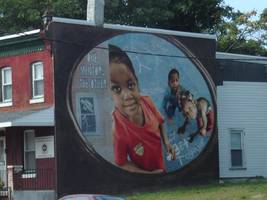
In the afternoon of Wednesday 19, we arrived in Philadelphia. Rev. Dr. William J. Shaw, president of the National Baptist Convention and Pastor of White Rock Baptist Church for 51 years was waiting for us. Dr. Shaw is a gentle and uplefting leader who has a sense for beauty. The US DOV committee was also gathered there for their meeting.
We all had dinner together and had a time to introduce ourselves and meeting the families that would host the Living Letters delegation in their homes. Each one of us went to a different house from members of the congregation, which gaves us the unique oportunity to experiment the close contact with these Christian families. I was hosted by Mr. and Mrs. Goodman. Donald and Rose invited me to their living room and we had an interesting and long conversation, discussing from politics to religion, comparing our societies and habits. I am thankful to them for having hosted me and for their unique hospitality.
Pennsylvania is definetely the State that opened the doors of their homes for us. In less than ten hours we've had lunch with an Amish family in Paradise and were hosted by Baptists in Philadelfia.
The morning of the 20th began with a breakfeast at White Rock, where we had the chance to hear from the Mayor of Philadelphia and other representatives of his cabinet about the alternatives that the city is choosing to combat and overcome violence in that area. Philadelphia has a historical background of church participation in the development of public policies. We also heard about the concept of a faith based community call for action, which tries to gathers different religious groups of the city around the issue of peace building strategies.
During the press conference at White Rock, we shared a statement in which we affirmed the urgence of Peace as one of the priorities in public policies not only in the US but also in our countries and in the wider global community.
Dr. Shaw took us then to a tour around te city of Philadelphia, showing us the need and the results achieved so far in issues of housing.
Philadelfia is today the city of the USA with the highest rate of homocides. Housing and crime issues are related not only in Philly, but also Johannesburg, Porto Alegre, Beirut or Lahore.
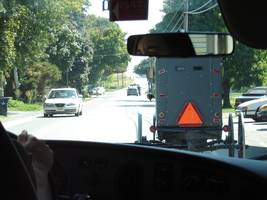
From Akron we drove to Paradise PA, right next to Nickel Mines. This is the heart of Amish country in Pennsylvania. This is the region that was chosen by many communities of this peaceful Christian lifestyle group to establish their roots long ago. And this is the place where about a year ago a neighbour entered a local school and shot ten girls (five of them deadly) before taking his own life.
On our way to Paradise, we received two press releases. One of them brings the statement released by the widow of the murderer, expressing her gratitute to the Amish community and the other one is from the Nickel Mines Accountability Committee, that reports the amount of money gathered and how it has been used. We had lunch in a family house with two representatives of the Amish community, one of them a member of this committee that was created hours after the shooting.
The raison d'être of this committee is the will to take part in the healing process that follows such a tragic and unexplainable event. Among other actions, the leaders of the Amish started a collection of funds to help not only the families of the girls directly affected by the deeds of the shooter (to cover hospital and other expenses) but also the family of the killer, formed by his wife and three children.
We heard from an Amish deacon how this community was pushed by their Christian theology to the only action possible: forgivennes. And we saw that this forgiveness is not easy to practice, also for the Amish community. It is hard to cope and fight against feelings of revenge, when one of the girls still lies in a hospital bed, barely expressing her feelings through timid facial expressions.
Paradise is the place where we found the meaning of following Christ to the last consequence. Forgiveness and reconciliation go hand in hand in the Christian theology peace building effort. Our human reason is put on the corner when we try to understand the causes of this and other crimes around the world. There are things that even we cannot understand; yet still these do not justify any deviation of Jesus' path.
Our brother deacon confessed that many members of his community were surprised by the public eye's reactions to the immediate Amish forgiveness of the shooter. Isn't that what Jesus has told us to do all of the time?, he stated.
There will be no memorial day to mark the first year of the death of the five girls of Nickel Mines. The simplicity and clearness of the Amish undertanding of the Gospel can drive us to only one conclusion: there has been no day since October 2 2006 that these girls weren't remembered.
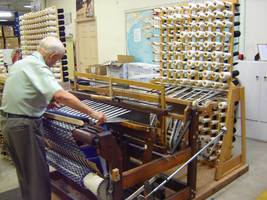
After having slept in the amazing facilities of the Welcoming Place of the Mennonite Central Committee (MCC) in Akron PA, our morning was dedicated to a short dialogue with leaders of this organization and a visit to their Resource Center.
The MCC has clear vision of its mission. They have a theologically based concept of development that implies also a notion of sustainability as the ultimate goal. This can be seen throughout the methodology used in relief work and other initiatives around the world in issues that go from the fight against racism to the Middle East context.
One of the questions that the MCC sets internally today is on how to bring the churches together for cooperation. One could also asks how the MCC can join forces in already existing initiatives of the churhes. MCC already engages in some initiatives of Action by Churches Together (ACT), which is an arm of the WCC for relief work and development.
The visit to the Resource Center worked as a visual confirmation of what we discussed in the conference room of the Welcoming Place hours earlier. It impressed us all: this big warehouse full of supplies and volunteers giving their time to prepare all sorts of resources to be sent for people in need: canned beef, hygiene kits, school resources. The beautiful quilting section, where women work together on these fine pieces of art was also memorable.
Seeing a 93 years old man operating a textile machine as a volunteer (photo) is something that moves you. Most of the volunteers we saw on work were not only elderly, but were doing things that are way more concrete and simple than the efforts we make back in our churches and ecumenical relations. This visit brought us back to simplicity, to pay attention to the power of simple tasks. They can create concrete results in the life of so many people.
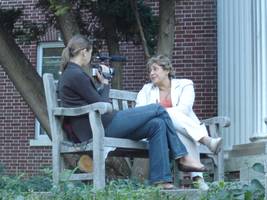
Each one of us has been reacting in different ways to this trip. Lina wrote this small article over the last few days and we thought that it would be great if the blog could sometimes work as a collective expression of us all. Much interested in your comments. Here are Lina\'s thoughts, to be shared:
THE TRANSFORMING POWER OF FORGIVENESS
Is Peace Possible?
Fresh from the funerals where they buried their own children, grieving Amish families attended the burial of the 32 year old non-Amish killer, Mr. Roberts, who shot dead 5 Amish school girls before killing himself. Of the 75 in attendance at the funeral, at least half were Amish. The Amish families greeted Mrs. Roberts and her 3 children - on that day, forgiveness was more than just a graveside presence; the Amish helped establish a fund for the assassin's family.
Would it possible for any non-Amish community in the East, West, North and South to hold such an enormous capacity to absorb adversity?
Would it be possible for the Armenians to forgive the Turks?
Would it be possible for the Jews to forgive the Germans?
Would it be possible for the Palestinians to forgive the Israelis?
Would it be possible for the Israelis to forgive the Palestinians?
Would it be possible for the Americans to forgive the Muslims?
Would it be possible for the Iraqis to forgive the Americans?
Would it be possible for the Lebanese to forgive the Israelis?
We all need forgiveness.
Extremists on both sides have destroyed the peace process.
The capacity to absorb adversity is an attitude. Individual and collective pacifistic attitudes are needed in the face of violence. In this sense, we have failed. The world today lacks leaders who are focused on long term peace.
Is it possible to build a society where ALL can belong?
Would it be possible for peoples and nations to have the courage to turn the other cheek, to forgive and to leave vengeance to God?
The Amish answer is yes.
They literally practice the forgiveness called for in our Lord's prayer.
The Christian answer is yes.
As Christians, forgiveness is woven into our faith. Jesus carried his cross without complaining and while on the cross he extended forgiveness "Father, forgive them, for they know not what they are doing."
I come from the biblical land of Lebanon, carrying to you a message of peace. I come to you from a divided and bleeding Middle East to a broken America.
Don't ask whether forgiveness works, simply practice it.
Lina S. Moukheiber
WCC Living Letters
September 2007
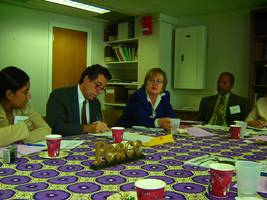
At the National Council of Churches of Christ in the United States of America (NCCCUSA) office in Washington we have been invited to participate in a dialogue on the themes of "domestice gun control & arms sales" and "the Iraq War".
We were welcomed by the president of the NCCCUSA, Rev. Michael Livingston, the Associate General Secretaries Rev. Brenda Girton-Mithchell, Esq. and Dr. Antonios Kireopoulos. We also had the opportunity to hear from a former staff of the WCC, Dr. Elizabeth Ferris, who is today a Senior Fellow of the Brookings Institute and other key persons from advocacy organizations (Oxfam, Million Mom March), members of the congressional staff like Ms. Kriston McIntosh and Ms. Reva Price, who is the Advisor Speaker of the House. This helped us understand better the panorama of the debate and efforts around the two issues we were focusing on during this morning.
From statistics to contextual analysis, the dialogue granted us all valuable resources for a deeper understanding of the political strategies of the peace related initiatives sponsored directly or indirectly by NCCCUSA.
The Oxfam representative, Mr. Scott Stedjan, brought us an impressive presentation using statistics on gun deaths in the US:
- Every 17 minutes someone is murder by gun fireguns
- Every 3 hours a child dies of gun firearms
Mr.Stedjan also reported about the attempts to create an international standard treaty in the UN to define what is legal and/or illegal in terms of gun sales. Although the US usually does not sign these treaties, they have not engaged in actions that go against the terms of such statements, such as the one related to landmines. The international context ends up creating a situation that has forced the US to comply to the terms of the treaty, following the international standards set by the international community.
In the afternoon, the Living Letters team was invited to go on a tour through the US Capitol, including a visit to the US senate galleries. Once again, the contrasts between the founding values of this nations and the policies of today were evident.
Dear readers: please forgive my mispells and grammar errors. I usually write this late at night after our visits and English is not my mother language. This post will be reviewed by the group tomorrow morning and all corrections will be done.
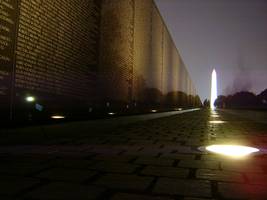
After six hours driving from Nyack to Washington DC, the Living Letters delegation was warmly welcomed by Rev. Phil Jones, director of the Washington Office of the Church of the Brethren.
Phil, as he gave us the freedom to call him, is a tall, gentle and emotive former dairy farmer who decided to put all his efforts to the cause of peace building. He took us for a tour to war monuments in Washington from the non-violent faith perspective. This tour intended to view the memorials on the west end of the National Mall through different lenses than we usually do as tourists.
From the doors of the State Department offices to the Korean War Memorial, Phil has guided us through a contemplative journey about the understanding of war according to Christian faith. Many were the questions that we shared:
- the cost of freedom is paid by so many human lives?
- victory and sacrifice are the only ways to build a great nation?
- why are some wars pictured as painful and others are presented as glorious and faceless?
We prayed together next to the Vietnam War Memorial, since this was our first stop in a series of war monuments.
We\'ve also seen the Lincoln\'s memorial and we could read on the walls the very values that forged this nation. We brought one of these statements to share here in the blog:
[Regarding the North and the South] \"...each read the same Bible and pray to the same God, and each invokes his aid against the other\".
This memorial has been the site of many famous speeches, including Martin Luther King\'s \"I Have a Dream\" speech, delivered on August 28, 1963, during the rally at the end of the March on Washington for Jobs and Freedom.
Finally, we arrived at the recently built (2004) World War II memorial, and then we have realized that these praises of violence and sacrifice are not only memories from the humanity\'s past, but are very much present today, in times we as churches are called to be protagonits. And this gave us strength. We went back to the hotel, assured that there is nothing we can do about the past unless bring the memories of the ones who have been forgotten. But there is also not much we can do about the future if we don\'t realize and compromise to an ethical attitude that will do nothing else than call the humanity to respect God\'s creation and not to practice violence of any kind.
Yesterday, in Nyack, Lina bought a sticker at the FOR gift shop that says: \"Why do we have to kill people that have killed people to show that killing people is not right?\". This death sentence debate resource can easily fit into the other questions we have raised among ourselves today during our memorial tour.
The picture is from the Vietnam War Memorial.
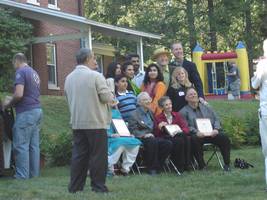
The annual Festival of Peace by the Hudson, organized by the Fellowship of Reconciliation (FOR) at their headquarters in Nyack NY gathered a number of people who have been serving the cause of Peace along their lives.
Founded as an international organization in December 1914 and in the USA in 1915, FOR has ever since become an interfaith and international movement with branches and groups in over 40 countries and on every continent. Today the membership of FOR includes Jews, Christians, Buddhists, Muslims, and people of other faith traditions, as well as those with no formal religious affiliation.
The Living Letters team had the opportunity to share a few insights about the WCC's DOV and from the cultural background of some of the members of the delegation, in between various musical performances and presentations that took place on the stage that was specially built in the backyard of "Shadowcliff", FOR's national headquarters by the Hudson.
During the celebrations, FOR presented their Peace Prizes and received from the WCC delegation the "Blessed are the Peacemakers" Award as a formal recognition to the long lasting and encouraging efforts of this organization to peace building initiatives in the country.
Informal conversation with FOR staff revealed an interesting historical fact that drove our attention to a further discussion and gave signs to a much needed follow up process. Since its foundation, FOR had close relations with the churches. Also during the second half of the last Century, the churches were engaged along with the peace organizations of the country in common initiatives. What FOR leaders acknowledge today is that this partnership is living a gap of mutual encouragement. Maybe the Living Letters have opened a window there for further contacts and increasing cooperation. The common dinner we had by the end of the day gave us a clear picture of the FOR's enthusiasm with the Living Letters visit and initiative.
To know more about FOR USA go to www.forusa.org
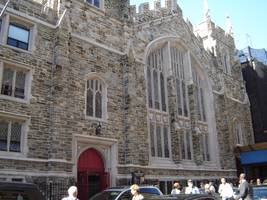
"One cannot go out from the Sunday morning service at the Abyssinian Church with the same heart that one was carrying at the entrance door". This was my first reaction when we started to talk among us about the impact of those nearly two hours in our lives.
From the expressive role that is given to the elderly of this congregation, who has the responsibility to share the eucharistic elements to those present in the Harlem's most famous church and express in their eyes the committment, the respect and the honour for such a task, to the magnificent gospel choir that pulled tears from our eyes in several moments, the experience of being part of this service worked as a common blessing on our meetings to come in the next days.
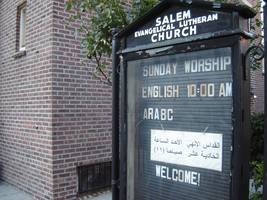
When Rev. Khader N. El-Yateem welcomed us at the Arabic Lutheran Church in Brooklyn on Saturday afternoon, we immediately realized that we were at an unique place. Formed long before September 11th 2001, this mission project of the Evangelical Lutheran Church in America, a member church of the WCC, hosted that day a panel of discussions about the religious scenario in the U.S. after the events of 9/11.
Representatives of local Christian amd Muslim groups were present. Representatives of the Jewish community, also protagonist of the neighbourhood's unique religious cooperation efforts, were absent based on respect for the Sabbath.
The members of the Living Letters delegation had the chance to share their cultural and religious background before the religious leaders present in the meeting started to give their insights on the diversity of the peace building initiatives experienced in this region of New York City.
This interreligious group holds the claim for peace from Brooklyn to all U.S. and the world, and is formed by lawyers, physicians, retired members of the U.S Army, religious leaders and journalists. The method they have chosen for peace building is simple: a system of building relationships and promoting dialogue encounters inspired not only by issues of prejudice or religion, but also by common matters that afflict the entire community, such as health care policies and education.
The affirmation of each one's identity is also part of this rich process. It seems that the better Christians can learn about Islam or Judaism, the better they can practice their Christianity.
The name of the congregation we were at is "Salam", the Arabic word for peace. What does it mean to say "salam"?, challenged the Rev. El-Yateem during his welcoming speech. This community, that from the moments right after the terrorist events of 9/11 has functioned as a "sanctuary"for many Arabic immigrants in the region (Christians Muslims) who started to suffer prejudice for the color of their skin or their cultural and religious background, has shown us that peace building and interreligious dialogue walk hand in hand in Brooklyn.
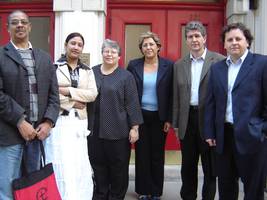
"Dear Lord, we're here not because of what we've done, but because of what You've done for us". The words of Edwin Makue, an elder in the United Reformed Church in Southern Africa and one of the members of this Living Letters team, pronounced during the morning prayers of the group's debriefing meeting in NY, last Saturday, expressed the primal condition in which the Living Letters team finds itself after our common faith confession to the One Church of Jesus Christ.
The informal headquarters of the beginning of this endeavour is located in the Upper West side of NY, at St. Hilda's House, a guest house which is part of the ministry of The Communion of the Holy Spirit. In this house, silence is not only valued for the sake of the comfort of the sisters and their guests, but is also a mark of the way that these Episcopal sisters have chosen to express their faith and experience their life in community.
The issue of silence seems to be more than appropriate in an occasion like this, when we prepare to start our ten day long journey through many different contexts in this country. Silence is frequently related to peace. Peace is the DOV's ultimate goal.
Our morning meeting focused on the agenda of our next days, when we will be in contact with church and religious leaders, congregations, communities and peace organizations. We also had the chance to introduce ourselves. The team is formed by people who come from different contexts. Hansuli, DOV coordinator, showed us the situation of the initiatives of the DOV so far and how the Living Letters project is placed in the WCC structure today. Edwin told us personal stories about Apartheid and post-Apartheid times, Lina shared a few aspects of her personal background in Lebanon and from the times she lived in the US, Aneeqa brought the approach from Pakistan and also her expectations about the impact of the Living Letters visits to the DOV. Deborah expects the Living Letters to bring a glimpse of the global context into a country that is often marked by exclusive interest in internal issues. I brought a few colors from the Brazilian background and how I recognize in the DOV and in the WCC's social ethical agenda many aspects that were launched and/or defended by the Latin American Liberation Theologies since the 70's.
The Living Letters visits have a important role not only in these decisive years of DOV, but also in the life of the Council. We shall not forget that we are bringing "living letters" from the WCC to the contexts we are about to visit as well. This close contact to member churches and with other groups that are not directly associated to the WCC have the potential to work and help people to be aware of the Council's challenges today and - more important - of how anyone can join efforts with the WCC programmes.
As a group, we have established our first contacts. The team spirit is there, and will increase everyday. We consider ourselves ready and capable to listen and to speak, to offer solidarity and to ask for people's attention to issues that go beyond their backyards and also to sitiations of violence in different countries with similar causes and consequences as the one North Americans have in their own country.
We're living letters. And we believe we're stamped and sealed with love, comprehension and peace.
